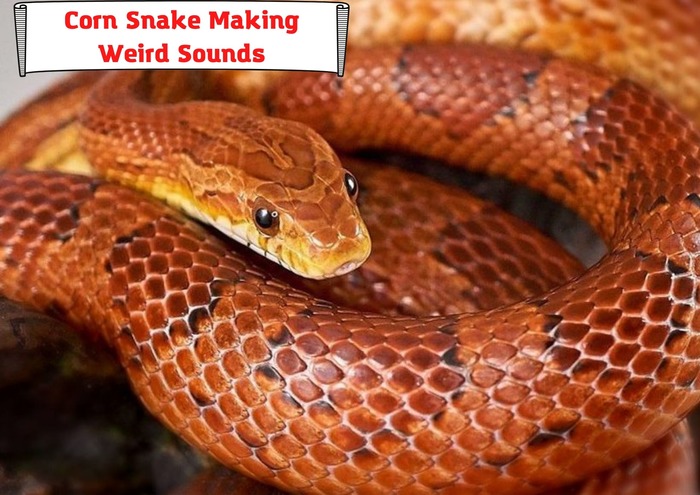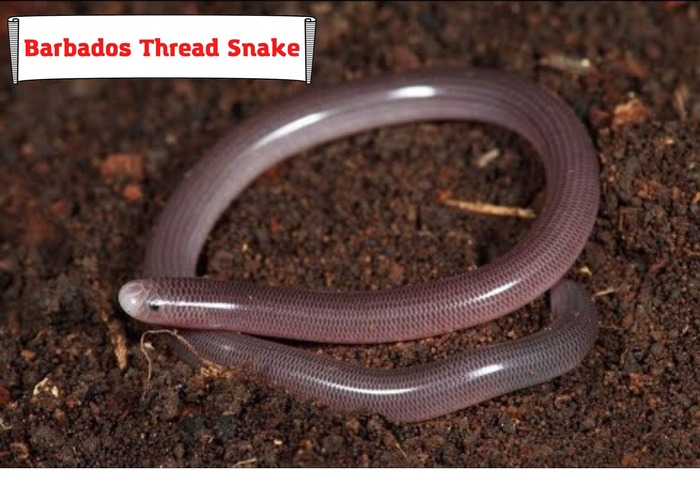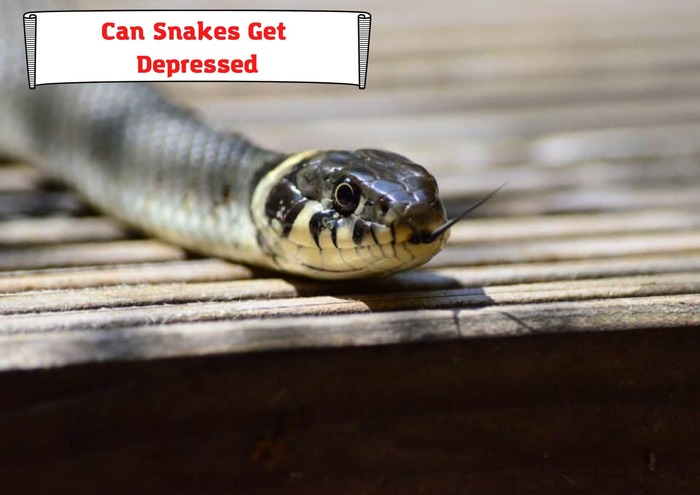
Many snake owners sometimes mistake the response of their snakes to external stimuli for emotional feelings. They often wonder whether the snake is sad, depressed, or bored after noticing some change in its usual behavior.
Our article explains whether snakes can feel these emotions. It also discusses how best to consider their reactions to the environment.
This article discusses whether snakes get depressed, bored, sad, or feel lack purpose. It further discusses what it means if your snake acts unnaturally and how best to understand their behavior.
Can Snakes Get Depressed?
Many snake owners feel a certain sense of attachment with their pets such that they begin to attribute human feelings to the snake.
Snakes are solitary animals. It would be impossible to link characteristics of depression such as low self-esteem and feelings of anxiety or hopelessness to snakes.
While some animals like monkeys, chimpanzees, and dogs may feel emotions like depression for many reasons, snakes cannot get depressed. Snakes do not have the emotional intelligence of monkeys or humans. They do not feel such emotion as depression.
It is best to think of their brains in terms of binary functions. They think in terms of two extremes: hot or cold, safe or risky, prey or predator, food or not.
The brain of a snake works based on the primitive structure of its natural environment. They do not have enough intelligence to feel depression.
Do Snakes Experience Boredom?
Boredom is an emotional state of mind where the subject is disinterested in its immediate environment.
It is not the same as depression, not apathy. It is a precise mental state where the subject feels that a period is dull.
Again, it is impossible to say that snakes experience boredom. Their intelligence level is not sufficient for them to feel bored or excited.
If your snake is not interested in anything, it’s likely a sign that something is wrong or it is exhibiting features of its solitary nature. But it is not proof that it experiences boredom in the same way that humans do.
Do Snakes Experience Lack of Purpose?
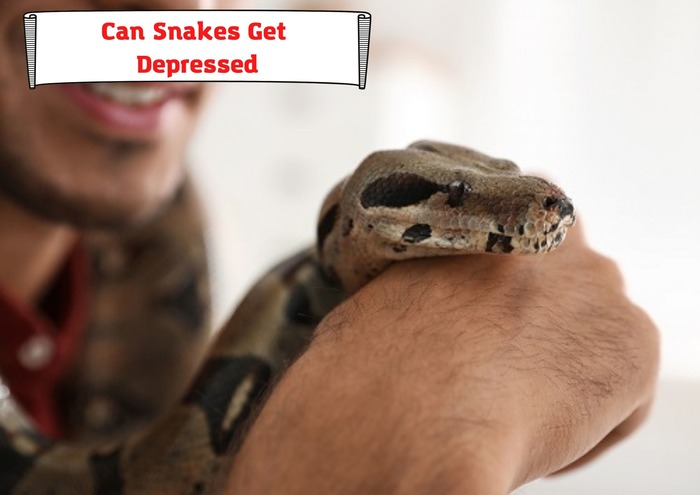
Snakes do not have any sense of purpose. Their intellectual capacity is not sufficient enough for them to have a purpose.
Their brain functions like a binary system which equips them for survival in the wild. A typical snake wants to hide, bathe in the heat and cold when it feels like it, hunt, preys for food when hungry, and migrate to regions where it will likely meet other snakes for mating during mating seasons.
Do Snakes Experience Sadness?
Sadness in other animals such as monkeys and dogs usually results from losing a partner or the owner. Monkeys have been known to exhibit traits that show that they are sad. Dogs have been shown to stay by the graveside of their owner till they die too.
As disappointing as it may sound, snakes do not have the emotional intelligence to feel sadness. They are not social animals or, as animal experts would say, gregarious animals.
They like to be alone except during mating seasons. But your snakes, if anything, would be happy to be alone rather than feel sadness because of the loss of a companion or any other reason.
Snakes are not sufficiently intelligent to develop sentiments or any other emotion towards their owners, tankmates, or anything for that matter.
Concerning Snake Responses That May Be Mistaken For Depression, Boredom, or Sadness
Snakes can’t feel sadness, happiness, depression, a sense of purpose, lack of self-esteem, self-depreciation, or any other emotion at all. If you find that your snake is acting strange, it is reasonably responding to whatever unpleasant thing is in its enclosure or happening to it.
If your snake is uncomfortable with the enclosure’s temperature, the brightness of the basking light, or any other system in its enclosure, it may exhibit some traits. But these traits must not be mistaken for emotions or psychological reactions.
They are simply an automatic response to the stimuli in their immediate environment. In simple terms, they are merely trying to find a way to cope with the unfavorable changes in their environment or to escape the enclosure to a place they feel safer.
Instances of these include the following:
- Appetite
Eating for snakes is unlike many other reptiles. The size, age, and species of the snake determine how often it will eat. But usually, snakes in the wild do not eat every day.
So if your snake does not eat when it should ideally be eating, that would not automatically mean that it is sad or depressed. Loss of appetite will most likely be a sign of an underlying illness.
If you notice your snake is not eating when it should be, it would be best to visit a veterinarian to examine the snake.
- Energy loss
Snakes are usually alert reptiles. They pay attention to the slightest movements around them because their primitive instincts are designed to notice such sudden movements and seek safety if they feel threatened.
So if you notice your snake is not reacting to movements in its immediate surrounding, that is not proof of any emotional sentiments.
The main probable reason for inactivity would be an infection, deteriorating health, or some other serious issues with the wellbeing of the snake.
But you can be sure it is not a psychological or emotional concern. Snakes do not have sufficient intelligence to feel emotions.
Positive Responses That May Be Mistaken For Depression, Sadness, or Lack of Purpose
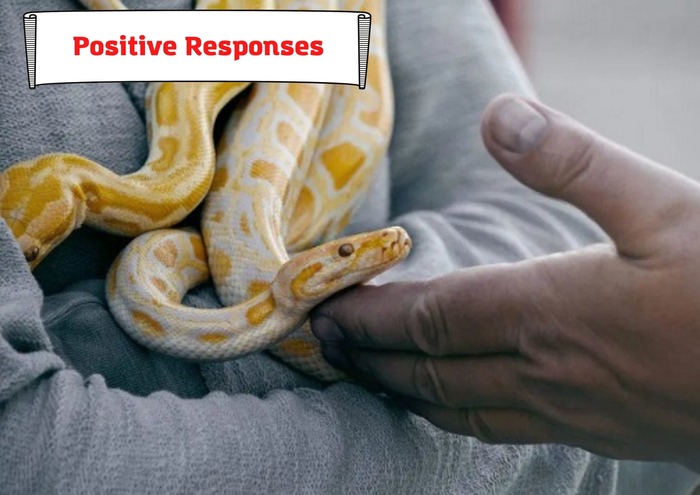
Pet owners may naturally love to imagine their snakes exhibiting emotions to convey that something is wrong or right.
While this may be a comfortable idea, it is not always so in reality. Snakes are not capable of emotions. Some responses that may be mistaken for depression, sadness, or boredom include:
- Relaxation
Snakes cannot feel happiness. But they can exhibit some signs from you that can infer that they are “happy” or feel safe.
They may become much more relaxed when you hold them or gently squeeze them on your hand while you hold them.
But this will not mean that they feel happiness in the sense that humans feel it.
To illustrate, dogs express that they are sad or anxious when their tails go between their legs and they are reluctant to respond to commands. Some dogs even cry to show sadness.
In contrast, they show happiness by wagging their tails and kissing or licking their owners’ faces. But these emotions cannot be experienced by snakes.
- Calm Tongue Flickering
Snakes flick their tongues to catch scents in the air to tell what or who is close to them. The calm flickering of their tongues in the air helps snakes recognize their owners.
Although snakes cannot feel emotions associated with companionship, they instinctively recognize their owners’ scents with positive rewards.
So when your snake is flickering its tongue, it is trying to get the scents in the environment to tell what or who is close by.
These signs are generally cool. So you do not need to be afraid.
What To Do If Your Snake Seems Depressed
- Check the living condition
Often, the behaviors that snake owners mistake for depression are usually spurred due to unhealthy living conditions. Ensure that the heat and cold zones are in place. Then, check the hides to be sure they are conducive. Provide more hides if you can.
Too much humidity could also be the problem. You can use a hygrometer to ensure that the humidity level is optimal. Snakes thrive well in 50%-60% humidity.
- Handling
Proper handling is important for the good health of your snake. Handle a new snake for shorter periods. Slowly increase the handling time. It would be best not to let strangers handle your snakes.
Also, it would be best to leave your snake for no less than a day after a meal. Handling them right after a meal will increase the chances of vomiting.
Finally, understand the breed you have. Some breeds love to cuddle and hang on to their owners more than others.
When To Visit A Vet
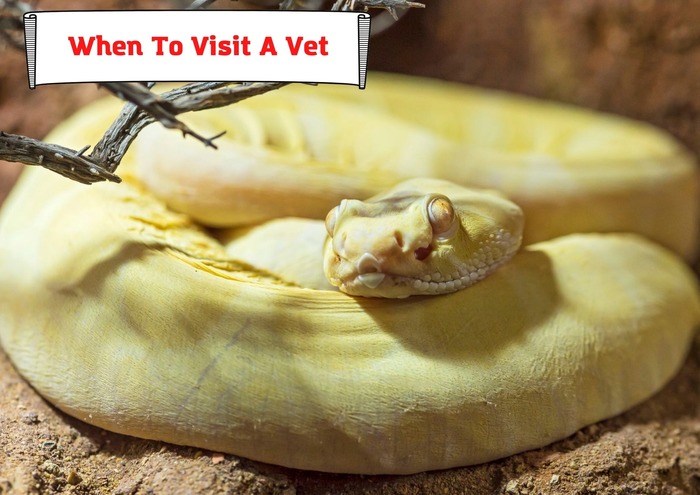
Here are some vital signs that signal more serious health issues. If your snake exhibits these symptoms, be sure to visit a vet.
- Difficulty Breathing
Usually, your snake will make wheezing sounds during sheds. But if you find your snake still wheezing days after shedding, it may be a result of an infection.
- Unusual weakness
Snakes are solitary animals. They spend time in hiding a lot. But if you notice any change in its hiding routine such that it is hiding for too long, you should see a vet.
- Feces
The unusual red stool is usually caused by possible bleeding in your snake’s digestive tract. Internal infections usually cause unusually green feces.
- Wrinkled and Dry Skin
Dehydration is a common sign that your snake is dying. The skin usually becomes wrinkled and dry. If you notice this in your snake, it would be best to visit.
- Appetite
If you find that your snake is eating less and less each day, you should be concerned. Loss of appetite is a sign of diseases like mouth rot, respiratory diseases, or parasites in its intestines.
- Injury
Any visible sign of an injury is a reason to visit the vet. Please do not wait for it to heal on its own. If you notice any visible injury on your snake’s body, it would be best to visit a Vet to limit the risks of a viral or bacterial infection that could cost you your snake.
Final Thoughts
It is common to see pet owners attribute human characteristics to snakes. This could be because they have had pets that exhibited such characteristics satisfactorily. Hence, the temptation to equate snakes to them.
But the truth, as disappointing as it may be, is that snakes are incapable of feeling any emotions. They can neither be happy, sad, depressed, bored, nor have a sense of purpose.
- Dubia Roach Egg Sack: How To Understand if It’s Healthy? - January 2, 2023
- How To Feed African Dwarf Frog While on Vacation? - December 26, 2022
- Baytril for Bearded Dragon: Here’s What You Should Know - December 19, 2022
